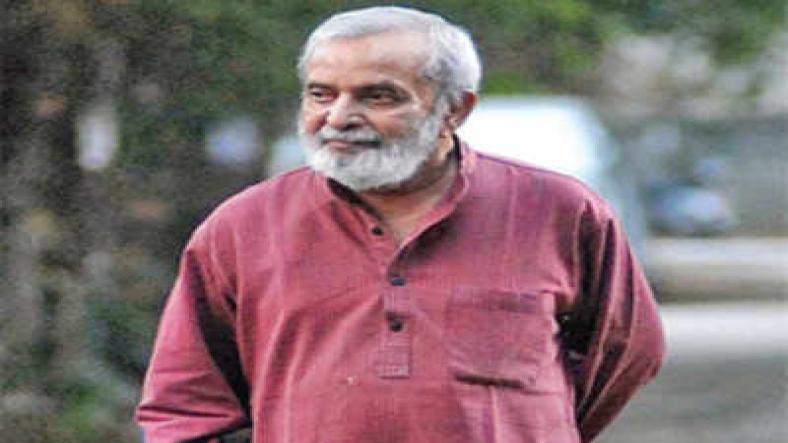Udupi Rajagopalacharya Ananthamurthy (1932–2009) stands among the most influential voices in modern Indian literature. A central figure of the Navya (Modernist) movement in Kannada, he reshaped the direction of Indian writing through his bold themes, experimental narrative forms and deep engagement with society, politics and human psychology. His works continue to be studied across universities, translated into multiple languages and widely discussed for their cultural relevance.
Early Life and Education
1. Birth and Background
Born on 21 December 1932 in Melige, a quiet village in Karnataka’s Udupi district, Ananthamurthy grew up in a traditional environment that later shaped his literary imagination. The cultural richness of rural Karnataka—stories, rituals, customs and everyday conversations—played a significant role in forming his worldview.
2. Academic Journey
Ananthamurthy completed his early education in the region before joining the University of Mysore, where he studied English Literature.
He later earned:
- A Master’s degree in English
- A Doctorate (PhD) in English Literature and literary criticism
His academic exposure allowed him to blend Indian cultural realities with international literary thought, something visible in all his writings.
Literary Career
U. R. Ananthamurthy’s literary career is marked by fearless storytelling, intellectual honesty and a commitment to exploring uncomfortable truths about society.
1. Major Works
Some of his most iconic works include:
- Samskara (1965)
- Madhukari (1966)
- Bhagya Rekha (1978)
- Multiple short stories, essays and critical writings
His debut novel Samskara remains one of the greatest modern Indian novels, exploring caste, identity, morality and the tension between tradition and modernity. The novel won the Sahitya Akademi Award and established him as a major literary force.
2. Narrative Style and Themes
Ananthamurthy was known for:
- Deep psychological insight
- Philosophical reflections
- Experimental narrative methods
- Honest portrayal of social conflict
His themes often included:
- Caste and social inequality
- Religious tensions
- Rural vs. urban identity
- Modernity vs. tradition
- Political power and corruption
His writing is both introspective and socially critical, making readers reflect on the world they live in.
3. Short Stories & Essays
His short story collections—such as “Jeevanaadi” and “Katha”—showcase his ability to capture subtle human emotions and everyday realities.
His essays are widely respected for their clarity, depth and commentary on literature, society and politics.
Awards and Recognition
1. Sahitya Akademi Award (1968)
Awarded for Samskara, the recognition marked his major contribution to Kannada literature.
2. Jnanpith Award (1994)
One of India’s highest literary honors, awarded for his lifetime achievements and his impact on modern Indian writing.
3. Other Honors
- Karnataka Sahitya Akademi Award
- Raja-Lakshmi Award
- Numerous national and international recognitions for literature and cultural influence
These awards reflect not just his literary brilliance, but also his importance as a public intellectual.
Google Ad 1
Academic and Professional Contributions
1. Teaching & Academic Life
Ananthamurthy served as a professor at:
- University of Mysore
- Jawaharlal Nehru University (JNU), Delhi
- Various international institutions during his visiting assignments
He influenced generations of students, researchers and young writers through his lectures, classroom discussions and literary criticism.
2. Critic, Thinker & Public Intellectual
He actively participated in national debates on:
- Education
- Politics
- Social justice
- Cultural identity
His views—often bold and provocative—made him a significant voice in India’s intellectual landscape.
Cultural & Social Impact
1. Influence on Kannada Literature
Ananthamurthy helped shape modern Kannada literature by:
- Introducing new narrative styles
- Asking difficult questions through fiction
- Challenging blind traditions and social structures
- Inspiring the next generation of writers
The Navya movement, to which he belonged, changed the way Kannada literature evolved in the 20th century.
2. Enduring Legacy
Today, his works continue to be:
- Taught in universities
- Studied by scholars
- Adapted into films and plays
- Discussed in literary circles worldwide
His influence extends beyond literature—into culture, politics, education and social thought.
Personal Life
1. Family
He was married to Smt. Saroja Ananthamurthy, and they had three children. His family environment supported his intellectual and literary pursuits throughout his career.
2. Public Persona
Known for:
- Integrity
- Strong opinions
- Progressive thinking
- Intellectual discipline
He was respected even by those who disagreed with his views, because of his honesty and courage.
Conclusion
U. R. Ananthamurthy was more than a novelist—he was a thinker, reformer and one of the strongest voices in modern Indian literature. His ability to connect literature with deep social questions makes his work timeless. His influence continues through readers, scholars, and the many writers inspired by him.
His legacy remains alive in every discussion on Kannada literature, modern Indian writing and cultural transformation.
Thanks for reading. For more biographies and people-centered stories, explore other articles on PeoplesBLOG.








![OnePlus Pad 2(12.1 Inch)LCD Display,12GB RAM, 256GB Storage,Snapdragon 8 Gen 3,144Hz Refresh Rate,Dolby Vision & Atmos,Open Canvas,AI features,6 speakers,Wi-Fi with Cellular Data Sharing [Nimbus Gray] OnePlus Pad 2(12.1 Inch)LCD Display,12GB RAM, 256GB Storage,Snapdragon 8 Gen 3,144Hz Refresh Rate,Dolby Vision & Atmos,Open Canvas,AI features,6 speakers,Wi-Fi with Cellular Data Sharing [Nimbus Gray]](https://m.media-amazon.com/images/I/61tslaYWLjL._SX679_.jpg)

